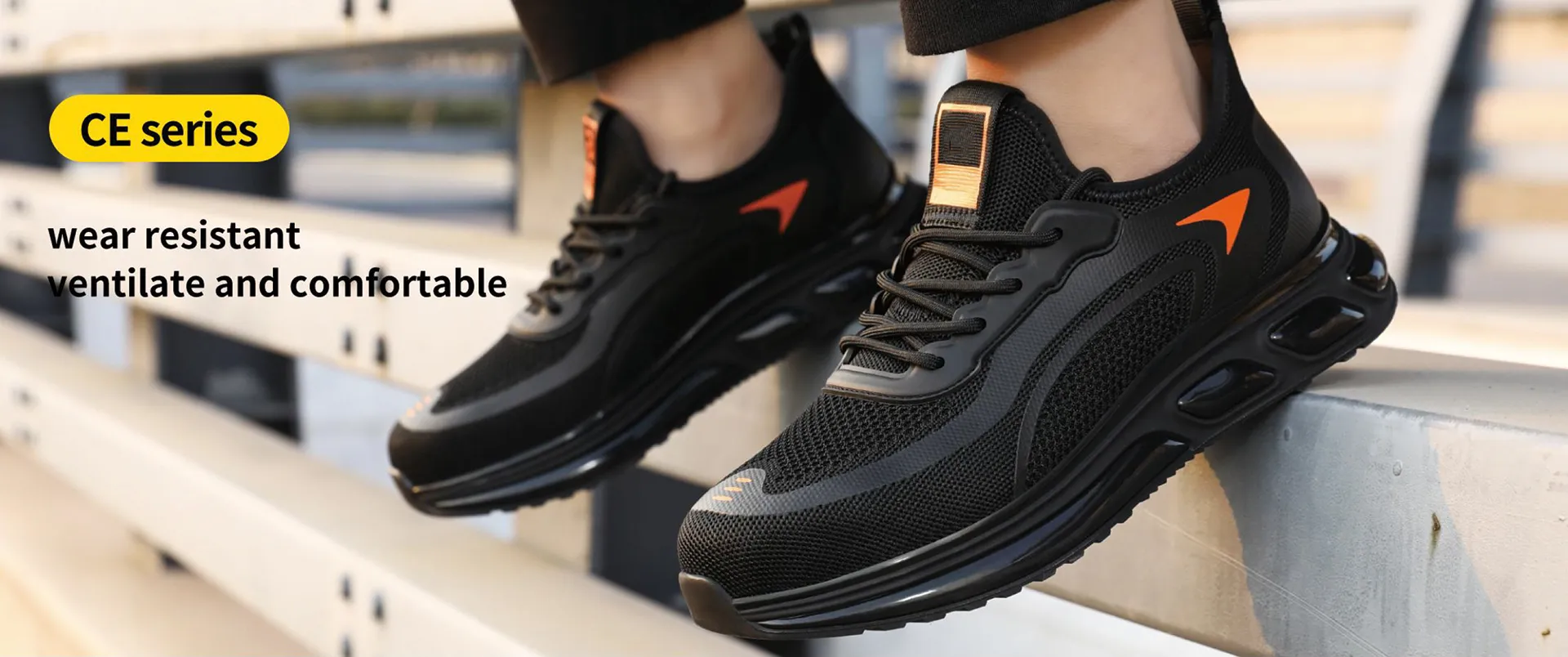In an exciting development for worker safety, a leading manufacturer of labor protection shoes has recently achieved a prestigious industry certification. This milestone not only highlights the factory’s commitment to high-quality standards but also emphasizes the growing importance of safety footwear in industries where employees face physical risks on a daily basis. The certification ensures that the shoes produced meet stringent safety and quality standards, offering improved protection for workers in various hazardous environments.
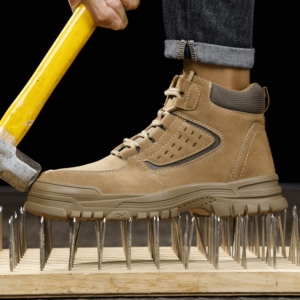
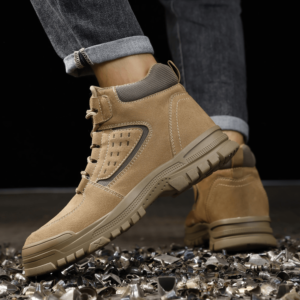
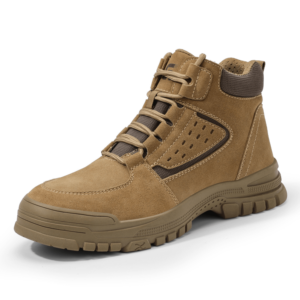
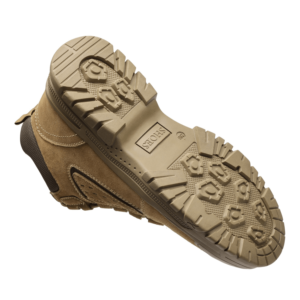
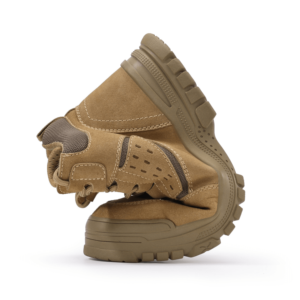 The Need for Labor Protection Shoes
The Need for Labor Protection Shoes
Labor protection shoes are an essential piece of personal protective equipment (PPE) designed to safeguard workers from injuries that could occur due to heavy machinery, falling objects, slippery surfaces, and other workplace hazards. These shoes are not merely a requirement in industries such as construction, mining, and manufacturing but are crucial in virtually every sector where workers face occupational hazards.
The demand for safety footwear has been steadily increasing as global industries continue to prioritize employee well-being. Safety footwear can help prevent a wide range of injuries, from minor cuts to more severe injuries such as broken toes or crushed feet. As workplace safety regulations tighten and the awareness around the importance of employee health rises, the need for high-quality labor protection shoes has become more critical than ever.
The Certification Process
Achieving factory certification for labor protection shoes is no small feat. The process involves rigorous assessments conducted by international safety organizations to ensure that the shoes meet the highest safety standards. In this case, the factory in question has undergone a comprehensive evaluation across several crucial criteria, including material quality, shoe construction, durability, and their ability to withstand common workplace hazards.
The certification process typically includes the following steps:
-
Material Testing: Each component of the shoe, from the outer layer to the sole, undergoes thorough testing to ensure that it can withstand extreme conditions. This testing is done to confirm that the materials are resistant to punctures, slips, and abrasions.
-
Impact Resistance Testing: The shoes are tested for their ability to protect the wearer’s feet from falling objects, sharp edges, and other impacts. This involves the use of a drop weight test to simulate the impact of heavy objects.
-
Comfort and Ergonomics Evaluation: Shoes are also evaluated for their comfort. Since workers are often required to wear them for long hours, the shoes must be designed to reduce foot fatigue and provide adequate support.
-
Durability Tests: The shoes undergo extensive wear tests to ensure they maintain their structural integrity over time, even after repeated use in demanding environments.
-
Slip Resistance Testing: Given that workers are often exposed to wet or oily surfaces, shoes are tested for slip resistance to reduce the risk of falls.
The factory, now certified, has demonstrated that it complies with all the necessary standards, offering high-quality, durable, and effective protective footwear to workers across various industries.
The Factory’s Commitment to Quality and Safety
This certification not only elevates the reputation of the factory but also underlines its ongoing commitment to worker safety. The factory has consistently prioritized quality control measures throughout its production process. From sourcing raw materials to final product testing, every step is carefully monitored to ensure that the shoes meet global standards.
The company’s commitment to innovation and improvement is also a key factor in obtaining this certification. Over the past few years, the factory has invested heavily in research and development, working with safety experts and engineers to refine the design and functionality of their shoes. Their efforts have resulted in products that combine safety with comfort, offering workers reliable protection while ensuring that the footwear remains comfortable during long working hours.
Impact on the Industry and Workers
The certification is expected to have a significant impact on the labor protection footwear industry. It sets a benchmark for other manufacturers, encouraging them to enhance their product standards and adopt better safety protocols. As more factories begin to realize the importance of certification, we can expect a future where safety footwear meets even higher standards, benefiting workers around the world.
For workers, this certification is a sign of better protection and increased safety on the job. It provides assurance that the footwear they wear has passed the highest standards of testing and is built to withstand the hazards they may face at work. Given that workplace injuries often result in long-term physical, emotional, and financial consequences, this certification offers peace of mind to workers, knowing that their well-being is a priority.
Benefits of Certified Labor Protection Shoes
There are many benefits associated with using certified labor protection shoes. These shoes are designed to offer more than just basic protection. They provide a combination of safety, comfort, and performance that enhances overall workplace safety.
-
Enhanced Protection: Certified shoes are designed to protect against various risks, including sharp objects, heavy machinery, and hazardous environments such as extreme temperatures or exposure to chemicals.
-
Improved Comfort: Since certified shoes are built with ergonomics in mind, they are more comfortable to wear for long periods. This reduces fatigue and discomfort for workers, allowing them to remain focused on their tasks.
-
Increased Productivity: With fewer workplace injuries due to better protection, productivity increases. Workers are less likely to suffer from accidents, resulting in fewer sick days and more efficient operations.
-
Legal Compliance: In many countries, safety footwear is a legal requirement in certain industries. By using certified shoes, companies ensure they comply with occupational health and safety regulations, avoiding potential fines and legal issues.
The Road Ahead: Expanding the Certification Process
The demand for certified labor protection shoes is expected to grow as more companies recognize the importance of employee safety. As industries evolve, so too will the standards for safety equipment. The factory is already planning to expand its certification to include new safety features and additional testing criteria that will ensure their products remain at the forefront of worker protection.
Additionally, the company is looking into expanding its reach into international markets. As global safety standards evolve, it is essential to ensure that products not only meet local regulations but also global expectations. This expansion of certification will be instrumental in making the factory’s labor protection shoes a trusted name across various industries worldwide.
Conclusion
The recent certification of this labor protection shoe factory marks an important achievement in the realm of workplace safety. By meeting and exceeding international safety standards, the factory has proven its dedication to providing workers with the best possible protection. As workplace safety continues to be a priority, this certification sets the stage for a future where certified, high-quality safety footwear becomes the norm in industries across the globe.
The significance of this achievement cannot be overstated, as it contributes to the ongoing efforts to ensure that workers around the world can perform their tasks safely, comfortably, and with confidence.



